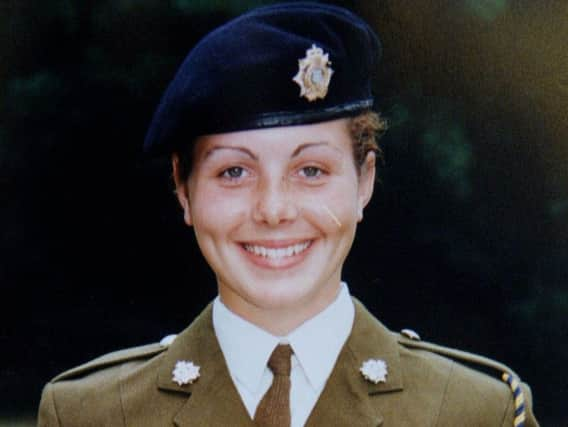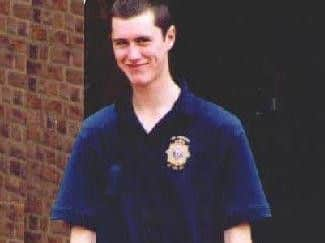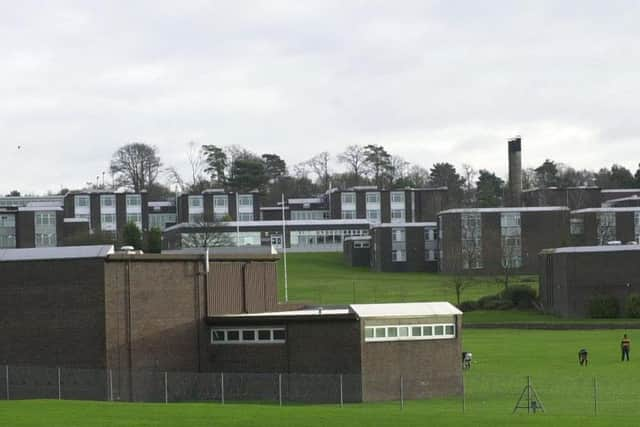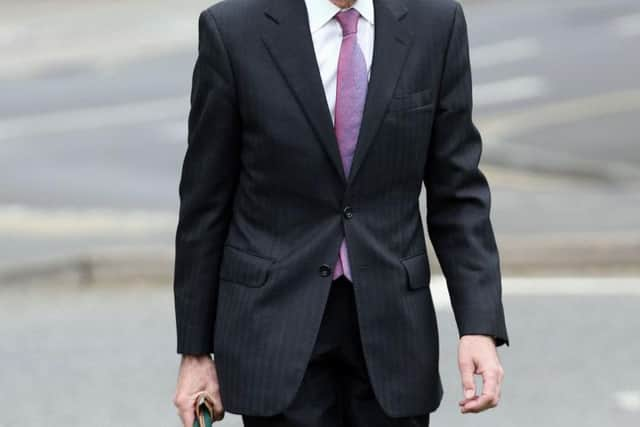Deepcut recruit died from 'self inflicted shot' coroner rules


The young recruit died from a gunshot wound to the head while on guard duty at the Surrey base in November 1995 - one of four recruits who died there over seven years.
Others include 17-year-old Seaham soldier Geoff Gray, who was found dead at the camp in 2001.


Advertisement
Hide AdAdvertisement
Hide AdHis mother Diane was at the hearing today as the conclusion was given.
Pte Gray's family are working on their own efforts to overturn the original open verdict given on his inquest and a new hearing, as are the loved ones of the two other recruits found dead at the same base in suspicious circumstances.
Pte James died as a result of an intentional "self-inflicted shot" while on guard duty at Deepcut barracks, a coroner has ruled today.
Delivering his conclusion following a three-month inquest into her death, Coroner Brian Barker QC said: "The conclusion is self infliction."


He added: "This was an intentional discharge by Ms James."
Advertisement
Hide AdAdvertisement
Hide AdThe coroner said Pte James had a "preoccupation with death" and would sometimes talk to her friends about what guests she would want at her funeral.
He said she was "disillusioned" with the Army and had a troubled adolescence which included an overdose.
She had light-heartedly talked to friends about how "easy" it would be to shoot oneself at the Army barracks.


Mr Barker said: "There can be no reasonable doubt that Ms James carried out an intended action and knew that its consequence would be death.
Advertisement
Hide AdAdvertisement
Hide Ad"I'm satisfied so that I'm sure Ms James inflicted the fatal shot and intended to die."
Delivering his conclusion following a three-month inquest into Pte James's death, Mr Barker also said said he was satisfied there is "no" evidence she was unlawfully killed.
He said: "When I ask myself if there is sufficient evidence with which I can properly reach a conclusion of unlawful killing the only answer I have is 'no'."


A fresh inquest was ordered into her death after High Court judges quashed an open verdict recorded in December 1995.
Advertisement
Hide AdAdvertisement
Hide AdThe coroner said Deepcut Army barracks had failed in its duty of care to its young recruits, with far too few officers to train and look after the recruits, who were left bored and indisciplined.
Launching a scathing attack on welfare standards at Deepcut, Mr Barker said the general culture of the base fell below the standard expected, saying the "haphazard provision of welfare support was insufficient".
He also highlighted a culture of sexual promiscuity and heavy drinking at the Surrey base.
Mr Barker said the Army accepted that some instructors "saw young females as a sexual challenge".
Advertisement
Hide AdAdvertisement
Hide AdHe added: "The evidence of this inquest supports the presence of consensual but improper relations between instructors and trainees."


He was also scathing about the poor quality of the initial investigation into Pte James' death, saying there was an early assumption of suicide.
The scene was also compromised and not adequately investigated and ballistics tests were not carried out to see if the bullet was fired by her rifle.
There was no forensic post-mortem examination, no detailed record of the presence or absence of gunshot residue, and bullet fragments were not preserved.
Advertisement
Hide AdAdvertisement
Hide AdPte James' clothes were also burned, and interviews of those at the barracks were inadequate.
Mr Barker said: "This has left unanswered questions which understandably fuelled speculation as to how Ms James died."
And in the absence of direct scientific evidence, experts investigating later were left to form conclusions without the evidence they usually have available to them.
In response to today’s conclusion, Air Vice-Marshal David Murray, chief executive, SSAFA, the Armed Forces charity, said: “Nine years ago, as a direct response to the Deepcut tragedies, SSAFA, the Armed Forces charity, set up Forcesline, a confidential helpline to ensure that our Forces had someone independent to turn to.
Advertisement
Hide AdAdvertisement
Hide Ad“In the last year Forcesline saw an 85% increase in calls from serving personnel, many relating to mental health issues.
"Some of those that we help are concerned that asking for support from their chain of command could be perceived as a sign of weakness.
"This is a real concern for us and in light of today’s verdict, serving troops must be encouraged to come forward with their problems and it is incumbent on all of us to let them know that it is OK to ask for help.”